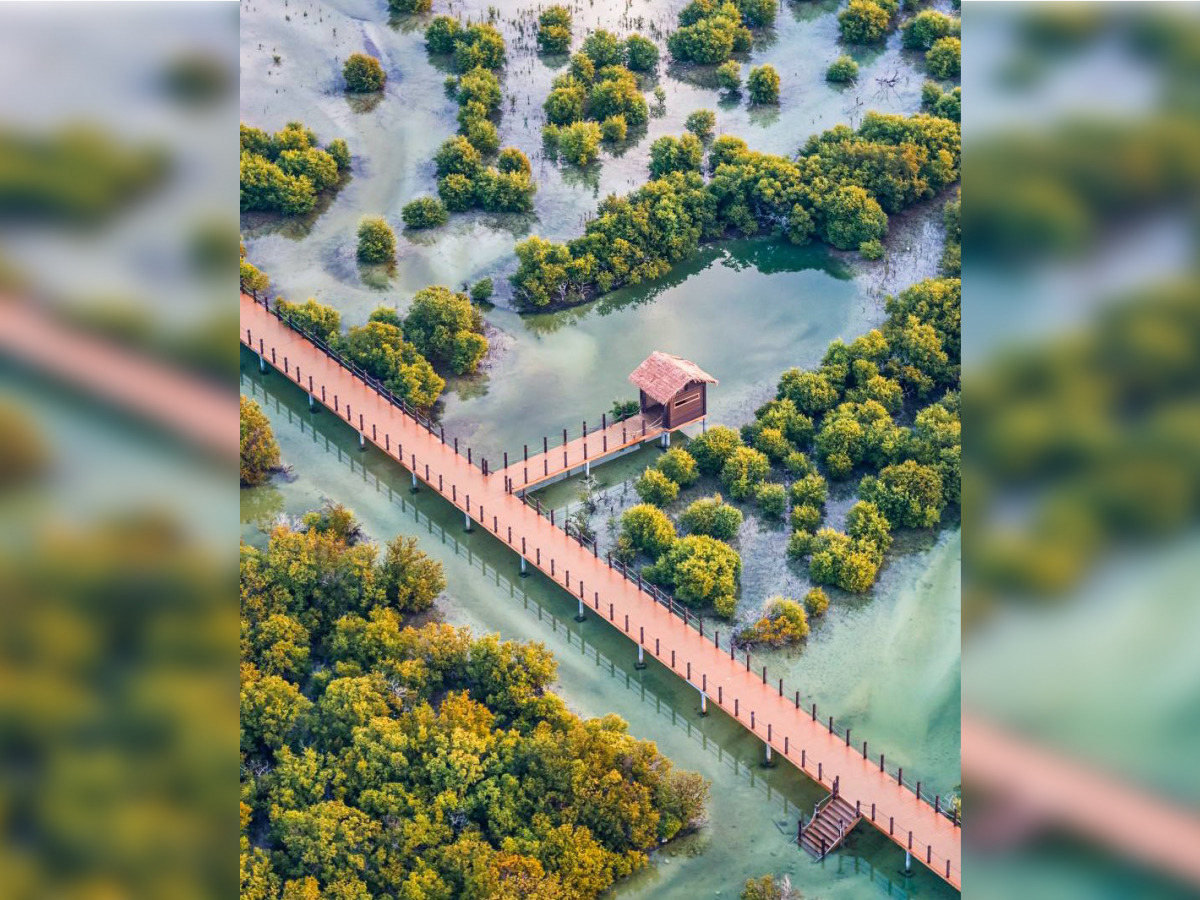Al Thakira mangroves. Source: Twitter/@almayassahamad
Doha, Qatar: The Earthna Center for a Sustainable Future (Earthna), a member of Qatar Foundation (QF), has embarked on a significant mangrove restoration project in collaboration with the Ministry of Environment and Climate Change.
Executive Director of Earthna Center, Dr. Gonzalo Castro de la Mata, while speaking to media recently, shared details about the ambitious initiative, which intends to boost Qatar’s resilience against rising sea levels and preserve its biodiversity.
Highlighting the critical role mangroves play in stabilising coastlines and mitigating the impact of sea level rise, Dr. Mata underscored the importance of this venture for Qatar. “Mangroves are very important for a country like Qatar because they help stabilise shoreline and with sea level rise, these mangroves will protect the country from sea level rise,” he said.
The project, which collaborates with Qatar University, encompasses research and restoration components. The initiative aims to rehabilitate degraded mangrove ecosystems through scientific inquiry and hands-on conservation efforts and advance our understanding of their ecological significance.
Mangroves play a major global role in mitigating climate change and protecting against coastal erosion. They efficiently absorb harmful carbon dioxide in the air, enhance air quality, and preserve the balance of natural environments.
Mangroves play a crucial role in Qatar’s ecosystem and environment, offering numerous benefits that contribute to the country’s sustainability and biodiversity.
Concerted effort have been made to conserve and protect mangrove ecosystems, including initiatives supported by the Ministry of Environment and Climate Change and Unesco. The Ministry has cultivated mangroves in four areas on the northern and eastern coasts — Al Ruwais and Umm Al Houl, Fuwairit, and Ras Matbakh.
In 2012, Unesco and partners started implementing a floating mangroves project to monitor the use of mangroves to capture carbon emissions and reduce atmospheric carbon levels. Dr. Castro de la Mata confirmed Earthna Center’s close coordination with past projects related to mangroves and engagement with Unesco counterparts. “Yes, we are working closely with previous initiatives, and we have been in touch with Unesco colleagues involved in those projects,” he said.
Read the full article here









